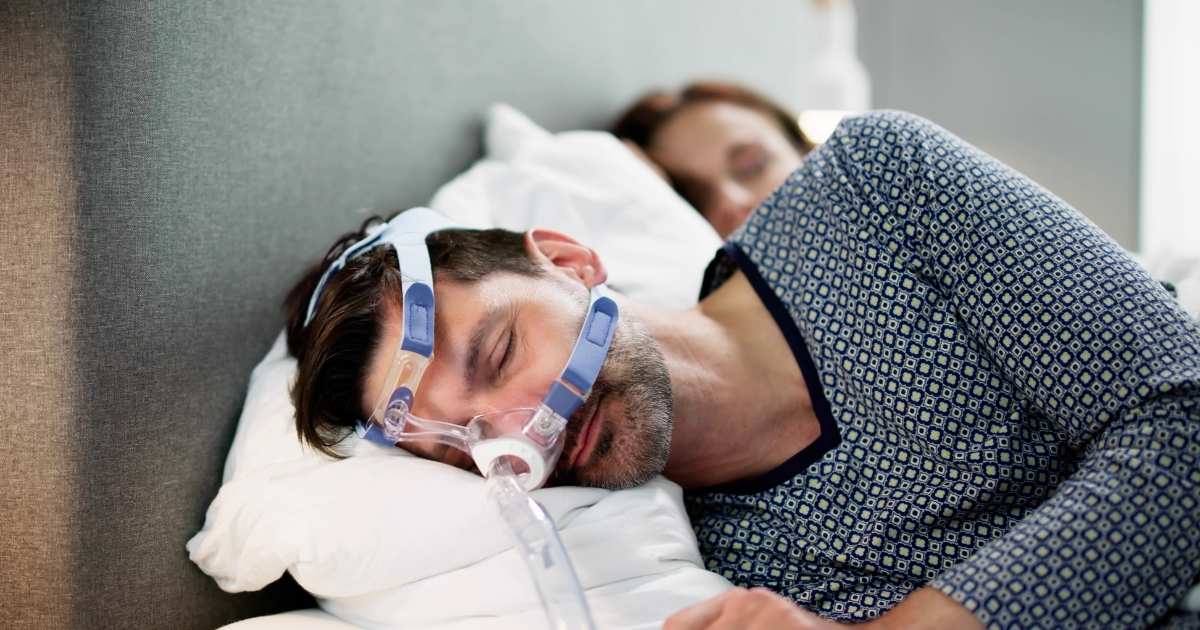Published on November 29, 2024

Sleep apnea is more than just loud snoring. It is a serious condition that affects breathing during sleep. When left untreated, it can lead to major health risks, including heart problems. Poor sleep quality and oxygen deprivation put extra stress on the heart, increasing the chances of complications.
Many people are unaware of the link between sleep apnea and heart disease. However, this condition can contribute to high blood pressure, irregular heartbeats, and even heart attacks. Understanding the risks can help in taking steps toward better health. Let’s explore how sleep apnea affects heart health and what can be done to reduce these risks.
What Is Sleep Apnea?
Sleep apnea causes breathing to stop and start repeatedly during sleep. This happens due to airway blockage or improper brain signals. The two main types include:
- Obstructive sleep apnea (OSA) – Caused by throat muscles relaxing too much and blocking the airway.
- Central sleep apnea (CSA) – Occurs when the brain fails to send proper signals to the muscles that control breathing.
Both types result in poor oxygen supply to the body, leading to multiple health issues.
How Sleep Apnea Affects the Heart?
1. Increases Blood Pressure
- Sleep apnea South Side causes frequent pauses in breathing. Each time breathing stops, oxygen levels drop.
- The brain responds by sending signals to increase heart rate and tighten blood vessels.
- Over time, this raises blood pressure, making it harder for the heart to function properly.
- People with untreated sleep apnea often struggle with hypertension, which increases heart disease risks.
2. Raises the Risk of Heart Attacks
- The constant strain on the heart increases the chances of a heart attack.
- Oxygen deprivation damages heart tissues, making them weaker over time.
- Sudden drops in oxygen can trigger irregular heart rhythms, which can be dangerous.
- Studies show that people with severe sleep apnea have a higher risk of heart-related emergencies.
3. Causes Irregular Heartbeats (Arrhythmia)
- Sleep apnea can disrupt the heart’s normal rhythm, leading to arrhythmia.
- The most common irregular heartbeat linked to sleep apnea is atrial fibrillation (AFib).
- AFib can increase the risk of blood clots, strokes, and other heart-related complications.
- Treating sleep apnea can help stabilize heart rhythms and reduce these risks.
4. Increases the Risk of Heart Failure
- Sleep apnea makes it harder for the heart to pump blood efficiently.
- The repeated oxygen drops force the heart to work harder, which weakens the muscles over time.
- Heart failure happens when the heart can’t supply enough blood to the body.
- People with heart failure often have sleep apnea, creating a cycle of worsening health.
5. Triggers Inflammation and Stress on the Heart
- Sleep apnea causes stress in the body by activating the nervous system.
- This leads to inflammation, which damages blood vessels and the heart.
- Chronic inflammation increases the risk of plaque buildup in arteries, leading to heart disease.
- Reducing sleep apnea symptoms can lower inflammation and improve heart health.
Signs That Sleep Apnea May Be Affecting Your Heart
Many people don’t realize they have sleep apnea. Some common signs include:
- Loud snoring and gasping for air during sleep
- Waking up feeling tired, even after a full night’s rest
- Frequent headaches in the morning
- Difficulty concentrating during the day
- High blood pressure that doesn’t improve with medication
If these symptoms sound familiar, it may be time to seek medical advice. Early detection can help prevent serious complications.
How to Reduce Heart Risks Linked to Sleep Apnea?
1. Get a Sleep Study
- A sleep study can diagnose sleep apnea and determine its severity.
- Based on the results, doctors can recommend the right treatment.
2. Use a CPAP Machine
- Continuous Positive Airway Pressure (CPAP) therapy keeps airways open during sleep.
- It improves oxygen levels and reduces strain on the heart.
- Many patients notice better sleep and improved heart health with consistent use.
3. Maintain a Healthy Weight
- Excess weight increases the risk of airway blockages.
- Losing weight can reduce sleep apnea symptoms and lower heart risks.
- A balanced diet and regular exercise help in managing both sleep apnea and heart health.
4. Avoid Alcohol and Sedatives
- These substances relax throat muscles, making airway blockages worse.
- Cutting back can help keep breathing normal during sleep.
5. Sleep on Your Side
- Sleeping on the back can worsen apnea symptoms.
- Side sleeping helps keep airways open and reduces breathing pauses.
6. Manage Other Health Conditions
- Controlling high blood pressure, diabetes, and cholesterol levels can reduce heart risks.
- Regular check-ups help in keeping heart health in check.
Sleep apnea is more than just a sleep disorder—it directly affects heart health. Ignoring it can lead to serious problems like high blood pressure, irregular heartbeats, and heart failure. The good news is that treatment can help. Managing sleep apnea can protect the heart and improve overall well-being.
If you suspect sleep apnea, consult a healthcare provider. Addressing the issue early can prevent long-term heart complications and improve quality of life.
